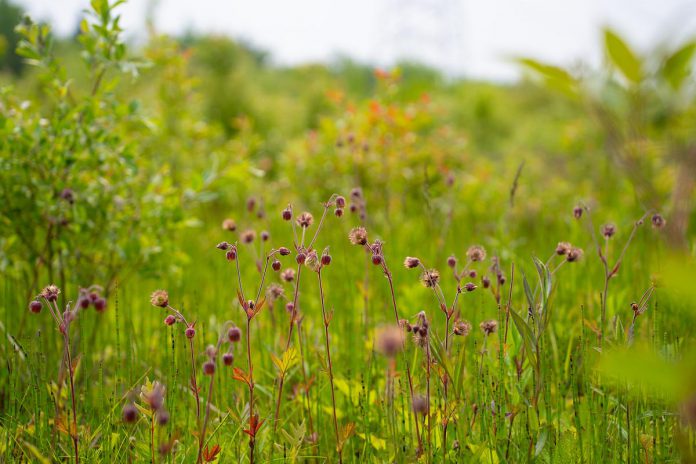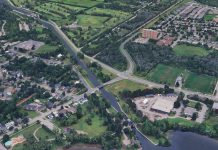
With forested areas, sand barrens, and wetlands, 61 hectares of ecologically significant land in Northumberland County will now be protected in perpetuity by the Nature Conservancy of Canada (NCC).
On Tuesday (September 16), NCC announced it has received a legacy gift that will allow it to strengthen the conservation corridor in the Rice Lake Plains and protect the Hazel Bird Nature Reserve.
An estate gift of land from James Massie will allow for the permanent protection of the biologically rich site and the chance to expand the Hazel Bird Nature Reserve — a community treasure that features four kilometres of walking trails — to 215 hectares.
The reserve is named after the late environmentalist Hazel Bird who, beginning in the late 1960s, helped re-establish the then-endangered eastern bluebird through the Bluebird Trial project, which saw the installation of hundreds of bluebird boxes in farmers’ fields in the Harwood area. A member of the Willow Beach Field Naturalists, Bird won the Ontario Eastern Bluebird Society Conservation Award in 1996. She passed away in 2009 just two weeks before her 89th birthday.
NCC staff first met Massie more than a decade ago when the organization began habitat restoration efforts at the reserve. Massie knew Hazel Bird, with remnants of her iconic bluebird box network remaining on the land.
“Years ago, when NCC began habitat restoration work at the Hazel Bird Nature Reserve, Mr. Massie, then a neighbour, was concerned about what he saw happening, worried that we were damaging the land, not healing it,” Brianne Curry, NCC’s communications manager for the Ontario region, told kawarthaNOW.
“But over time, through conversations and trust built with our local staff, he came to understand the ecological goals behind the work,” Curry explained. “That shift from concern to understanding to confidence was so profound that Mr. Massie ultimately chose to leave his land to NCC in his will. It is a powerful example of how education and relationships can change minds and lead to lasting impact.”
The expansion protects a range of habitats, from restored tall grass prairie to spring-fed headwater wetlands and spans a four-kilometre cross-section of the Oak Ridges Moraine.
The gifted property is located immediately south of the existing nature reserve. It supports a diversity of native species and contains remnant tall grass and oak savannah communities that are rich with prairie plants, such as savannah grass, sand dropseed, and New Jersey tea.
The property’s proximity to the Hazel Bird Nature Reserve, a signature site for tallgrass prairie restoration, means its protection helps sustain a large example of globally rare black oak savannah and woodland habitat, according to a media release.
“This project builds on conservation efforts in the Rice Lake Plains and Northumberland County, where NCC and local partners have been working to restore habitats for many years,” the release states.
The newly expanded reserve is also being managed as a source of native tall grass seed to support habitat restoration initiatives across the region, after receiving a boost from the Greenbelt Foundation.
The NCC expressed its gratitude to the late James Massie, stating that his “vision and generosity made this conservation achievement possible,” and also thanked the many private donors who also supported the project.
“NCC is proud and honoured that Mr. Massie has entrusted this property to NCC, and we’re thrilled about its direct connection to the Hazel Bird Nature Reserve,” noted Mark Stabb, NCC program director for central Ontario east, in a statement. “We are looking forward to restoring tallgrass ecosystems, such as oak savannah, on this fantastic property — a conservation outcome we know Mr. Massie wanted for his land.”
This bequest brings the total area of conservation land protected directly by NCC in the Rice Lake Plains and Northumberland County to more than 1,200 hectares.
Habitat and restoration activities planned for the property include mapping of tall grass remnants, removal of some trash and debris, controlling non-native invasive species, and planting and seeding projects.
As Canada’s largest environmental charity, NCC has worked with partners to conserve natural landscapes since 1962. The private, non-profit organization aims to deliver solutions to address the dual crises of biodiversity loss and climate change through large-scale and long-term conservation.


























